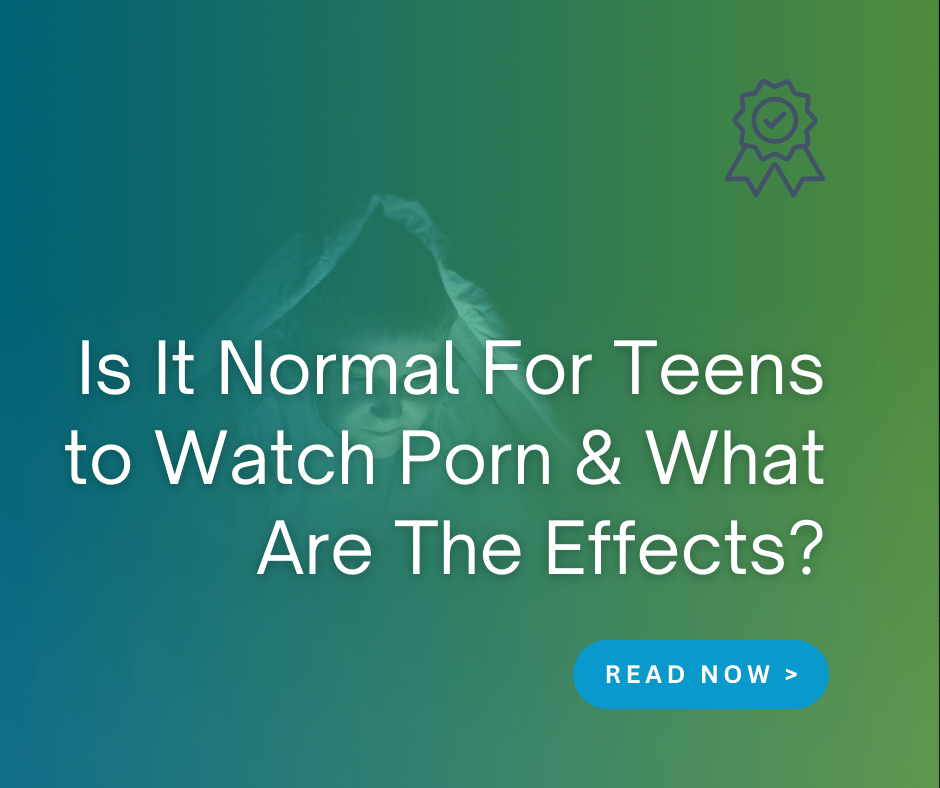What Do I Do When My Teen Abuses Alcohol?
Most parents expect their teenage child or children to experiment with alcohol during high school. They’re not sure when, or exactly how, but they know it’s likely to happen at some point during their teenage years. That doesn’t mean they’re happy about it or want it to happen. And it doesn’t mean they encourage it. But most parents are right: data collected over the past fifty years by the National Institute of Health (NIH) shows that most teens do, in fact, try alcohol before they graduate from high school.
Most parents do not expect, however, that their teenager will abuse alcohol, drink heavily, or develop a problem with chronic drinking or binge drinking. Nor do they expect that they’ll need to find alcohol abuse treatment for their teen. They may have heard about addiction treatment centers that specialize in helping adolescents who abuse alcohol, and they may know that some teenagers go to rehab when they develop problems with alcohol or drugs.
If you’re the parent of a teen and you’ve recently learned your teen abuses alcohol, you’re probably in a state of shock. You may be angry at your teen or angry at yourself. You may be disappointed in your teen or sad and despondent over the whole situation. Or you may be totally overwhelmed. By the news your teen has a drinking problem, by the fact that it developed without your knowledge, and by the fact you know you need to find them the best professional support available.
That last point is critical, although it may be hard to accept. If your teen abuses alcohol, they may have developed what’s known as an alcohol use disorder (AUD). AUD is the clinical term mental health professionals use to describe the condition that used to be known as alcoholism.
Adolescent Alcohol Use Disorder (Alcohol Abuse)
Let’s back up and get on the same page about something. Only a health professional such as a doctor, psychiatrist, or clinical psychologist can diagnose a mental health disorder like AUD. We may need to get on the same page about what we mean when we say AUD, too. Here’s what you need to know: AUD is a chronic health condition, classified as a mental health disorder by the Diagnostic and Statistical Manual of Mental Disorders – Volume 5 (DSM-V).
We now treat AUD as we’d treat any other disease. We use evidence-based therapies backed by both experimental and clinical data. Medical health professionals no longer view problem drinking – a.k.a. AUD – as a character defect, a lack of willpower, or some sort of moral failing. It’s a medical condition, and people diagnosed with it need treatment and support in order to heal.
Now we’re clear on two things:
- An article like this cannot diagnose your teen – only a health professional can. If you think your teen abuses alcohol but they have not received a full assessment from a mental health professional, that’s the first thing you need to do: arrange an assessment at an adolescent addiction center or a behavioral health treatment center for teens.
- AUD is a mental health condition that responds to appropriate treatment. If your teen has received a full professional assessment and, based on that assessment, received a diagnosis for AUD, then it’s likely they’ve also received a referral for treatment.
That’s the critical point we started to make above: if your teen has an AUD diagnosis and a professional recommends treatment, then it’s important for you to get them treatment as soon as possible. Evidence shows that the sooner a teen with AUD gets treatment, the more likely they are to achieve sustainable recovery.
The Long-Term Dangers of Teen Alcohol Abuse
One of the primary reasons it’s important to get a teen with AUD into a treatment program – if a professional makes the recommendation – is that long-term exposure to alcohol can lead to a host of physical, social, psychological, and emotional problems later in life.
We’ll start with the effect of alcohol on the major organs of the body.
The Brain
Long-term exposure to alcohol can damage both the function and structure of the brain. Chronic drinking can cause Wernicke’s-Korsakoff Syndrome (WKS). WKS can lead to alcoholic dementia, memory loss, eye problems, memory issues, and the inability to learn or remember new information.
The Heart
Chronic drinking can cause cardiomyopathy, a heart disease with symptoms such as dizziness, fainting, shortness of breath, and abnormal pulse, among other things. The symptoms of cardiomyopathy may go undetected for years and only discovered when heart failure is imminent.
The Liver
Excess, long-term alcohol consumption damages the liver. It can cause liver disease, liver failure, and in extreme cases, death. There are three types of liver disease most often caused by chronic alcohol consumption:
- Alcoholic Cirrhosis.
- Alcoholic cirrhosis means scarring of the liver caused by alcohol. Cirrhosis is not reversible. Untreated cirrhosis causes permanent damage. However, when cirrhosis is detected early enough, further damage – and consequences – can be avoided.
- Alcoholic Hepatitis.
- People with alcoholic hepatitis experience symptoms like stomach pain, fever, jaundice nausea, vomiting, and poor appetite. Over a third of chronic, heavy drinkers develop alcoholic hepatitis. Early detection can reverse the condition, but if alcoholic hepatitis goes undiagnosed, it can lead to severe complications, up to and including death.
- Alcoholic Fatty Liver Disease.
- Alcoholic fatty liver disease is a buildup of fat in the liver and impairs optimal function. This is the least damaging of the liver diseases caused by excessive alcohol consumption and can be reversed.
The Kidneys
Kidneys eliminate waste, regulate fluids, process toxins, produce urine, and release chemicals that help bone health, blood pressure, and the production of red blood cells. Chronic alcohol use impairs these critical processes and can lead to kidney disease.
The Pancreas
The pancreas produces hormones that help regulate blood sugar levels and enzymes necessary for digestion. Chronic, excess drinking can lead to an inflammation of the pancreas – called alcoholic pancreatitis – that severely impacts how the pancreas works. In some cases, untreated pancreatitis can lead to death.
Long-Term Alcohol Use and Cancer
The American Cancer Society (ACS) indicates the following forms of cancer are directly linked to excess alcohol use:
- Mouth
- Throat
- Voice Box
- Esophagus
- Colon
- Rectum
- Breast
Those are the primary physical consequences of alcohol abuse: serious problems with the brain, the heart, the liver, the kidneys, the pancreas, and an increased risk of several types of cancer. If a teen who abuses alcohol does not get treatment and keeps drinking, the data shows they’re at increased risk of developing all the medical conditions/problems listed above.
Teen Alcohol Abuse: Additional Problems
Some of the social, psychological, and emotional complications adolescents can develop as a result of alcohol abuse include:
- Cognitive problems or learning challenges that impair decision-making
- The ability to form new memories and recall facts
- Decreased brain size and attenuated development
- Poor grades, decreased school engagement, and quitting school
- Withdrawal from friends, family, and favorite activities
- Aggressive or violent behavior
- Risky sexual behavior
- Increased risk of committing or being a victim of sexual assault
- Legal problems
- Alcohol-related automobile accidents
It’s clear: chronic, excess drinking can cause serious problems. The problems are physical, social, and emotional. This data is not speculative. Research shows that the kind of heavy drinking associated with alcohol abuse will lead to these problems. Although some people escape the worst, everything we listed above is a very real consequence of alcohol abuse – and data shows that the earlier a person starts drinking and the longer they drink the worse these problems become.
However, something else is true: treatment for teen alcohol abuse works.
Evidence-Based Treatment for Teen Alcohol Abuse
Decades of evidence show the best treatment for a teenager with AUD follows the integrated treatment model. The integrated treatment model is an all-inclusive approach developed over the past twenty years that considers all elements of a teen’s life and includes them in what’s called a treatment plan. In the integrated model, each plan is different, because each teen is different. A teen who abuses alcohol has a unique set of biological, psychological, family, and social factors that contribute to both the development and the continuation of their drinking problem.
To learn about the top ten essential elements of integrated treatment for teens, please read our article How to Find the Top Adolescent Residential Treatment Centers.
The goal of integrated treatment is to leave no stone unturned. Clinicians who use the integrated treatment approach want to learn everything they can about the teen. They want to know about any co-occurring disorders, any family issues, any past trauma, any adverse childhood experiences, and any previous treatment approaches the teen may have tried.
To learn about co-occurring disorders and their relationship to teen alcohol abuse and drug addiction, please read our article Behavioral Health Treatment Centers Help Teens Overcome Addiction and Substance Use.
Elements of Integrated Treatment
If your teen needs treatment for alcohol abuse (AUD), the evidence is clear: the integrated model is effective. At a teen treatment center that applies the integrated model, your teen will engage in the following types of treatment and support:
Individual Therapy
- Teens work with a therapist to uncover the origin of their AUD
Group Therapy
- In a group setting with a licensed counselor and a group of recovery peers, teens learn the facts about AUD.
- Therapists teach teens practical skills to manage AUD:
- Trigger management
- Relationship skills
- Social skills
Family Therapy
- Teens learn how their family environment impacts their AUD
- Families learn new ways to communicate and restore family harmony
Mindfulness-Based Stress Reduction
- Therapists or counselors teach teens practical skills like yoga and meditation to help manage stress without using alcohol
Experiential Activities
- Clinicians lead teens in expressive therapies such as art, music, or drama
- Counselors lead teens on carefully planned and chaperoned excursions to help them learn how to have fun without drinking
Exercise
- Teens in treatment get outside and get moving. With exercise as simple as hiking or as involved as surfing, counselors and peers help teens reconnect to their bodies, the natural world, and restore a sense of vitality that often gets lost during active addiction
Community Support
- Teens in treatment learn about groups like Alcoholics Anonymous (AA), Narcotics Anonymous (NA), and Alateen. These groups become essential for long-term sobriety after official treatment ends.
During treatment for alcohol abuse at an integrated treatment center, your teenager will learn the practical skills they need to stay sober. That’s one of the most important parts of treatment: learning to live life without drinking. If your teen has a co-occurring disorder, they’ll learn how to address that, as well, because co-occurring disorders often contribute to and/or exacerbate a problem like alcohol use disorder.
Treatment for the Whole Person
Something we just said may have raised your eyebrows: staying sober is one of the most important parts of treatment. Staying sober is the ultimate goal, of course. Your teen will learn more along the way, though. They’ll learn – and this goes hand in hand with sobriety – that they have the power to choose the life they want to live. Integrated treatment provided by skilled professionals connects them to the inner resources they need to believe in themselves, make proactive, life-affirming choices, and move forward toward a life without alcohol.












